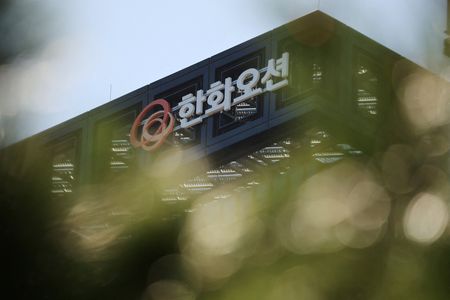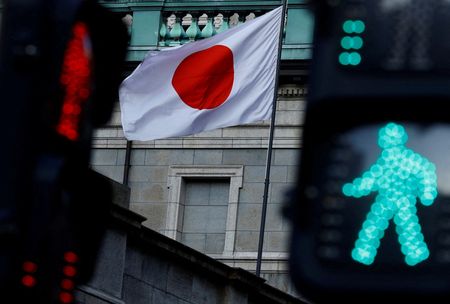By Leika Kihara
TOKYO (Reuters) -Japanese Prime Minister Sanae Takaichi said on Monday she would work on setting a new fiscal target extending through several years to allow more flexible spending, essentially watering down the country’s commitment to fiscal consolidation.
The country’s new prime minister also renewed calls for the Bank of Japan to go slow on interest rate hikes, despite signs most central bank policymakers would prefer to see a resumption of monetary tightening sooner rather than later.
In her push to revive growth, Takaichi said she would not rule out a cut to Japan’s sales tax as a future option, reinforcing market expectations that her administration will prioritise steps to reflate the economy over fixing worsening public finances.
The remarks signal a major shift from past administrations that stuck to annual fiscal targets and emphasised the need to maintain market trust in Japan’s finances, even as they deployed sizable spending packages.
“We’ll ensure to maintain market trust in Japan’s sustainable finances. But unless we boost investment, the economy won’t grow,” Takaichi told parliament.
The administration’s focus on expansionary policies could complicate the BOJ’s decision on how soon to resume a rate-hike cycle that has been paused due to uncertainty over the economic fallout from higher U.S. tariffs.
“I hope the BOJ guides appropriate monetary policy to stably and sustainably achieve 2% inflation driven not by cost-push factors, but wage increases,” Takaichi said, urging the BOJ to cooperate with government efforts to stimulate demand.
A draft outline of Takaichi’s economic package, seen by Reuters, also said it was “extremely important” for monetary policy to focus on achieving strong economic growth.
POLITICAL PRESSURE ON BOJ GROWING
The BOJ kept interest rates steady last month but its board saw a growing case to raise rates in the near-term, a summary of opinions at the meeting showed on Monday.
The central bank next meets for a rate review on December 18-19, around the time the administration finalises a draft budget for next fiscal year.
“The tone of the October summary suggests almost all in the board will vote for a rate hike if proposed by the governor,” said Ayako Fujita, chief Japan economist at JP Morgan.
“But it’s uncertain whether the BOJ can make necessary adjustments to avoid confrontation with the new administration,” she said.
Takuji Aida, an economist chosen to join Takaichi’s flagship economic panel, said the BOJ should avoid raising rates in December as the economy likely contracted in the third quarter, according to the Nikkei newspaper.
NEW FISCAL GOAL EYED
Since taking office last month, Takaichi has pledged to compile a package of steps to cushion the blow from rising living costs, and boost investment in growth areas and defence.
Analysts warn such spending plans could threaten Japan’s goal, set in a fiscal blueprint set in June, to deliver a primary budget surplus sometime through fiscal 2025 to 2026.
Takaichi told parliament last week she would drop the idea of using the annual primary budget balance as Japan’s fiscal consolidation goal, in favour of a new one that extends through several years.
While she ruled out ditching the current target immediately, Takaichi said on Monday she would instruct her cabinet in January next year to start work on setting the new fiscal target.
“From now on, I’d like to examine new measures to look at the balance (of budget) in a several years’ horizon,” Takaichi told parliament on Monday.
The primary budget balance, which excludes new bond sales and debt-servicing costs, measures the extent to which policy measures can be funded without resorting to debt.
Japan has repeatedly pushed back the timeframe for achieving a primary budget surplus as past governments continued to deploy massive spending packages to reflate the economy and fend off shocks such as the pandemic.
Takaichi has criticised the primary budget balance as out of sync with global standards and constraining Japan’s ability to use fiscal tools to prop up growth.
Japan is saddled with public debt twice the size of its economy, which is the worst among major economies. Analysts warn the BOJ’s rate-hike plans and dwindling purchase of government bonds would raise the cost of funding its huge debt pile.
(Reporting by Leika Kihara; Editing by Chris Reese and Sam Holmes)










